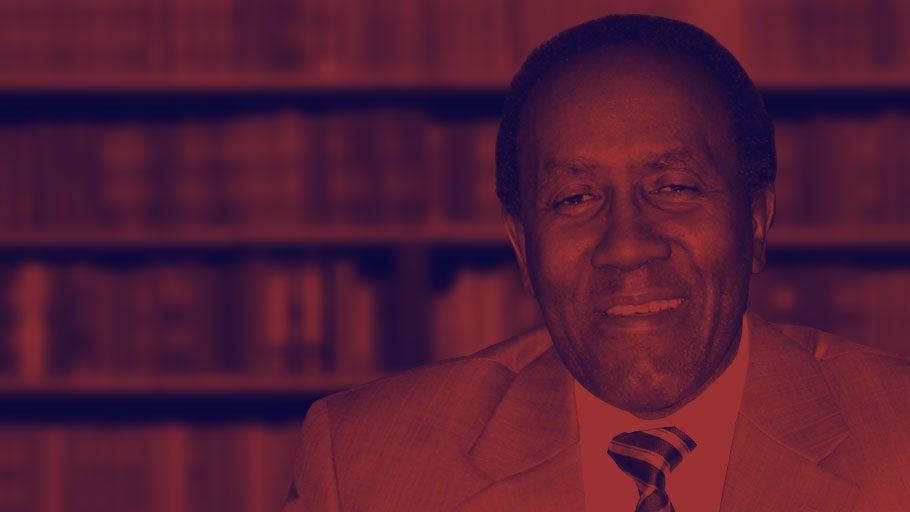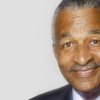For Carib News 9/26/16
Prime Minister Andrew Holness graced the Jamaican Diaspora in New York by appearing at the Jamaica Performing Arts Center in Jamaica, Queens last Thursday, September 22, 2016. The Diaspora community came out in great numbers to dialogue with the Prime Minister. It was an evening marked by a respectable exchange of views and the eagerness of the Diaspora to contribute to the developmental process in Jamaica.
This is Prime Minister Holness’ second bite of the apple as after Bruce Golding stepped down in late 2011, Andrew Holness was selected by the Jamaica Labour Party as its new leader and thus Prime Minister. In the December election that ensued the short-lived Holness administration was swept out of office and the PNP led Portia Simpson Miller was reinstated at Jamaica House.
During his tenure as Leader of the Opposition, Andrew Holness had to withstand serious challenges to his leadership. He had demanded that two Senators who were not supportive3 of him should resign and he replaced by loyalists to Holness. Those who were unsympathetic to Holness argued that he had acted unconstitutionally and should resign. Holness held his ground.
At the JLP Conference in yesteryear, Audley Shaw mounted a challenge to his stewardship of the Jamaica Labour Party but the incumbent managed to prevail.
When the votes were counted in the election of February, 2016, Holness seemed shocked that the J.L.P had won a majority of the seats, even though by the slimmest of margins. What was amazing is that the JLP triumphed in all ten designated swing constituencies.
Political parties in Jamaica are defined by the caliber of the respective Party Leader. That has been the case since the genesis of universal suffrage elections in 1944. The charismatic Alexander Bustamante had assumed the leadership of the working class movement and was in the forefront of the 1938 anti-colonial rebellion. “Busta” became the hero of the agro-proletariat and the working class in Jamaica. That base enabled Bustamante and the JLP to triumph in the elections of 1944 and 1949.
Norman Manley and the PNP during those early years had captured the imagination of the middle class and the intelligentsia. Norman Manley in winning the 1955 election was instrumental with compatriots like Noel Nethersole to put together the institutional infra-structure that has steered modern Jamaica.
The other leaders who have done more to shape their respective Parties and modern Jamaica are Michael Manley and Edward Seaga. Their approach to the developmental process in Jamaica could not have been more diametrically opposite. Michael Manley was convinced at the beginning of the 1970s that the crisis gripping Jamaican society was caused by economic inequality and social injustice. The exclusion of a sizeable segment of the society from prosperity was tearing the newly independent country apart.
Eddie Seaga was cognizant of the social injustices but placed greater emphasis on Jamaicanizing the economy to stimulate economic growth. The economy after the bauxite expansion had ceased, had come to a snail-like growth. But as Holness remarked on Thursday, the Jamaican economy has performed abysmally over the last 40 years. Annual budgets became dependent on deficit spending, and the accumulated debt soared.
Prime Minister Holness sees his historical mission is to return Jamaica to a path of robust growth. Since taking office, the Prime Minister has concentrated the relevant agencies capable of spurring growth under his elastic portfolio at Jamaica House. It is a herculean undertaking and after months in office Prime Minister Holness is still enjoying a honeymoon. In democratic party politics honeymoons are invariably short-lived unless one can produce results.
At the meeting with the Disapora, the Prime Minister gave us some insight into his thought process. Mr. Holness spoke of the need to make the public sector more efficient to ensure that foreign and domestic investors would not be turned off by unnecessary bureaucratic red tape. He spoke of the need to get the Jamaican fiscal house in order. The previous IMF agreements did force the fiscal discipline and some progress in reducing the debt and balancing the annual budget has been achieved.
The Prime Minister also highlighted the need to transform the educational system to ensure that graduates would have the skills necessary to meet the demands of the private sector. Even more important, the Prime Minister had the intellectual honesty to speak forthrightly that the scourge of crime was an impediment to economic development and spoke vaguely of the necessity to expand the Jamaica Constabulary Force.
There were a few questions and comments from the audience about the crime situation in Jamaica and there is a Task Force from the Diaspora who will be visiting Jamaica to determine how their expertise can contribute to reducing crime.
The years of P.J. Patterson and Portia Simpson Miller at the helm were far from transformational. The current Prime Minister has pinpointed the headwinds thwarting economic growth in Jamaica and his administration will be judged whether or not he can achieve the economic growth and prosperity promised in the JLP platform of 2016. Campaigning is always easier than governing and Prime Minister Holness’ leadership skills will be tested in the coming years. Jamaica is in desperate need of great leadership
It is the responsibility of economic councils to spur investment but it is also necessary to have some clear vision in an age of globalization as to what needs to be done in order to bring about the rise in living standards of the mass of the population.
Jamaica has the challenge of expanding the productive capabilities of the Jamaican economy and this cannot be seen as merely meeting domestic needs or consumption. In an age of globalization, in order to bring about a rise in living standards, the economic expansion must be geared to finding new export markets and maximizing increased distribution in existing markets. This expansion of the productive capabilities of the Jamaican economy will invariably soak up the chronic surplus labour problem that has led to a sub-culture of violence and a propensity for racketeering.
In an article published in the Business Section of the Jamaica Observer on September 23, 2016, Karena Bennett quotes the CEO of Seprod Group, Mr. Richard Pandohie, about that company’s plans to expand into the Dominican Republic and subsequently into Haiti. Seprod’s products are already distributed in the United States, the United Kingdom and Canada. The country desperately needs a thousand Pandohies with a keen understanding of the critical necessity to find new markets and expand exports.
At the meeting with the Jamaican Diaspora, Jamaicans domiciled in New York and beyond were eager to find ways to enrich Jamaica. They are already contributing to their homeland in terms of remittances, capital for schools and investment in housing, etc. But one critical role that the Diaspora can play is to be ambassadors for Jamaican products. There are as many Jamaicans living abroad as in Jamaica and as an organized entity can meaningfully contribute to the expansion of markets overseas. The Diaspora business community can play a vital role in helping companies in Jamaica to find new niche markets.















